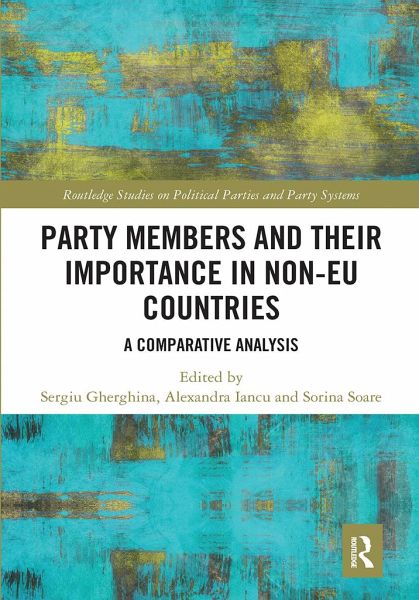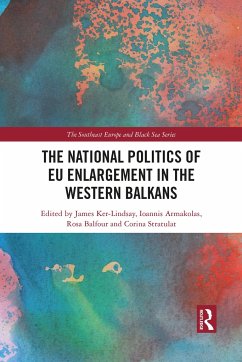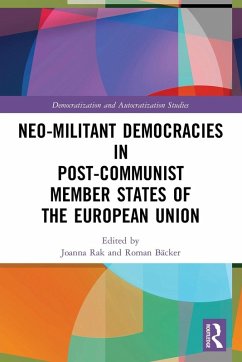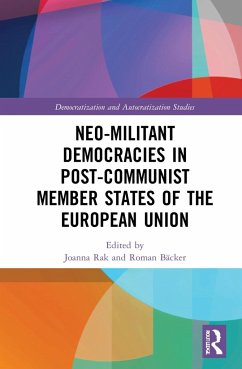
Party Members and Their Importance in Non-EU Countries
A Comparative Analysis
Herausgegeben: Gherghina, Sergiu; Iancu, Alexandra; Soare, Sorina

PAYBACK Punkte
23 °P sammeln!
Although party membership has been extensively analysed in the EU Members States from Western and Eastern Europe, there is a gap in systematic data collection and analyses for the other countries in the Balkans and post-Soviet region.This book provides new and innovative insights in the area of party membership research to analyse the evolution of membership organizations in political parties from under-investigated countries. Specifically, it seeks to understand the way in which political parties and the national legislation conceptualize the notion of membership within and across countries. ...
Although party membership has been extensively analysed in the EU Members States from Western and Eastern Europe, there is a gap in systematic data collection and analyses for the other countries in the Balkans and post-Soviet region.
This book provides new and innovative insights in the area of party membership research to analyse the evolution of membership organizations in political parties from under-investigated countries. Specifically, it seeks to understand the way in which political parties and the national legislation conceptualize the notion of membership within and across countries. It provides original data and affords a first comprehensive, comparative study of party members in the EU neighbouring countries, which resonate particular interest because some of them occupy the "precarious middle ground between a full-fledge democracy and outright dictatorship". In light of these relevant observations, this systematic analysis of membership evolutions in democratizing countries brings valuable insights for the study of party politics in general.
This text will be of key interest to scholars and students of political parties and party systems, party organisation and elections, post-Soviet and East European politics and more broadly to democratization studies and comparative politics.
This book provides new and innovative insights in the area of party membership research to analyse the evolution of membership organizations in political parties from under-investigated countries. Specifically, it seeks to understand the way in which political parties and the national legislation conceptualize the notion of membership within and across countries. It provides original data and affords a first comprehensive, comparative study of party members in the EU neighbouring countries, which resonate particular interest because some of them occupy the "precarious middle ground between a full-fledge democracy and outright dictatorship". In light of these relevant observations, this systematic analysis of membership evolutions in democratizing countries brings valuable insights for the study of party politics in general.
This text will be of key interest to scholars and students of political parties and party systems, party organisation and elections, post-Soviet and East European politics and more broadly to democratization studies and comparative politics.














